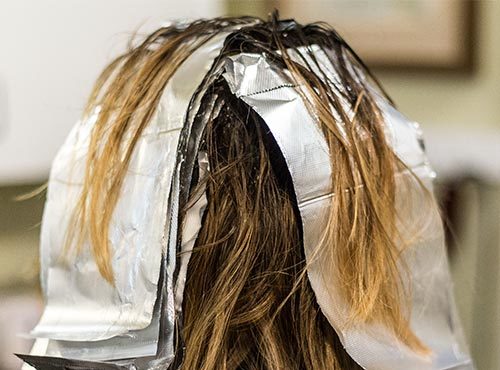Questions about whether chemicals used to colour or straighten hair can cause cancer have swirled for years.
The answers have been inconsistent and inconclusive, but a large new study released on Tuesday had some sobering findings: Women who used permanent hair dye or straighteners, or applied straighteners to others, had a higher risk of developing breast cancer than women who didn’t use those products.
The link was particularly evident in black women — their use of permanent dye was associated with 45% higher breast cancer risk, while white women faced a 7% higher risk. Straightener use was associated with 18% higher breast cancer risk.
The results suggest using hair dye and straightener “could play a role in breast carcinogenesis,” the study noted.
Still, women shouldn’t be overly alarmed by the findings, said lead author Alexandra White, an investigator at the Epidemiology Branch of the National Institute of Environmental Health Sciences.
“We know that a lot of different factors influence a woman’s risk of developing breast cancer, and these risks we see here, they are meaningful but they are small,” White told TODAY.

“Women should take that into context with everything else in their life, including their physical activity and diet. These are all factors we have to consider when we’re thinking about our long-term health risks.”
Other experts also urged women to remember that correlation does not mean causation.
“While these results are intriguing, they do not provide good evidence that hair dyes or chemical straighteners are associated with a meaningful increase in the risk of breast cancer or that any increased risk association is causal,” said Paul Pharoah, a professor of cancer epidemiology at the University of Cambridge, in a statement.
“Women who have used such products in the past should not be concerned about their risks.”
The U.S. Food and Drug Administration does not have “reliable evidence” showing a link between cancer and hair dyes available on the market today. The International Agency for Research on Cancer has concluded personal use of hair dyes is “not classifiable as to its carcinogenicity to humans.”
What the study found:
The findings, published in the International Journal of Cancer, are based on data from 46,709 women enrolled in the Sister Study, named for the fact that all had a sister diagnosed with breast cancer but were cancer-free themselves.
The participants had a higher underlying risk of developing breast cancer, but the findings likely still apply to the general population, White noted. “We’re not studying women who all have a breast cancer gene,” added co-author Dale Sandler, chief of the Epidemiology Branch at the National Institute of Environmental Health Sciences.
At the start of the study, all women filled out questionnaires about the hair products they used in the past year. More than half of all the women, 55%, reported using permanent dye and 75% of black women said they used chemical straighteners.
As researchers followed the women for an average of eight years, they found 2,794 cases of breast cancer.






